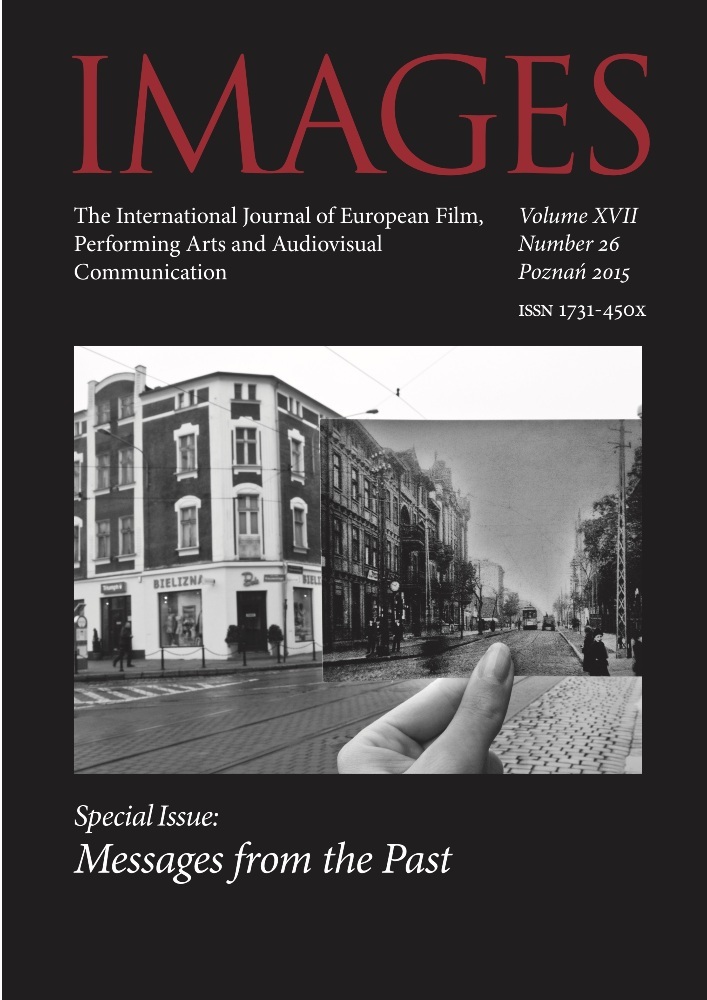Abstract
The Postmodern Vision of the Warsaw Uprising in Jan Komasa’s City 44
City 44 (2014) by Jan Komasa presents an original vision of the Warsaw Uprising – especially when compared to other historical productions. Both formal aspects of the film and the way its presents the uprising expose its postmodern character. Th e conclusion that City 44 can be interpreted by means of key postmodern concepts is based on an analysis of its visual aspects, such as scenes operating at the edge of realism and aff ectation, and aesthetic denominators taken from all genres, as well as pop culture references, intertextuality, and the subjective vision of the uprising based on the story of two main protagonists.
References
Biuletyn informacyjny Miasto 44. Film fabularny Jana Komasy [online, b.d.], s. 5 [dostęp: 5 lutego 2015], <http://miasto44.pl/edu/Biuletyn_informacyjny.pdf>.
M. Jazdon, Historia w polskim filmie dokumentalnym przełomu wieków (w: Klucze do rzeczywistości. Szkice i rozmowy o polskim filmie dokumentalnym po roku 1989, pod red. M. Hendrykowskiej, Wydawnictwo Naukowe UAM, Poznań 2005, s. 49).
A. Lewicki, Sztuczne światy. Postmodernizm w filmie fabularnym, Wydawnictwo UWr, Wrocław 2007, s. 68–69.
A. Zalewski, Strategiczna dezorientacja. Perypetie rozumu w fabularnym filmie postmodernistycznym, Instytut Kultury, Warszawa 1998, s. 49.
Ani guzika. Z Jarosławem Markiem Rymkiewiczem rozmawia Krzysztof Masłoń, „Rzeczpospolita” [online] 2008, październik [dostęp: 8 lutego 2015], <http://tma.org.pl/ht/rymkiewicz_ani_guzika.html>.
J. Socha, Uciec z powstania, „Dwutygodnik” [online] lipiec 2014 [dostęp: 8 lutego 2015], <http://www.dwutygodnik.com/artykul/5360-uciec-z-powstania.html>.
S. Sontag, Notatki o kampie, tłum. W. Wertenstein, „Literatura na świecie” 1979, nr 9, s. 308–319.
U. Eco, Dopiski na marginesie „Imienia Róży”, w: idem, Imię róży, przeł. A. Szymanowski, PIW, Warszawa 1987, s. 613.
R. Stobiecki, Historiografi a na przełomie XX i XXI wieku. Krajobraz po bitwie, „Biuletyn Polskiego Towarzystwa Historycznego” [online], 2005 [dostęp: 27 lutego 2015], <http://www.pthlodz.uni.lodz.pl/teksty/historiografi a.pdf>.
M. Olszowska, Mit Powstania Warszawskiego a polskie kino narodowe, w: Kino polskie jako kino narodowe, pod red. T. Lubelskiego i M. Stroińskiego, ha!art, Kraków 2009, s. 141–162.
I. Kurz, Powstanie 2014, „Powidoki. Blog o kulturze wizualnej” 2014 [dostęp: 8 lutego 2015], <http://kulturawizualna.uw.edu.pl/powstanie-2014/>.
License
Copyright
© by Adam Mickiewicz University, Poznań, 2015
OPEN ACCESS
